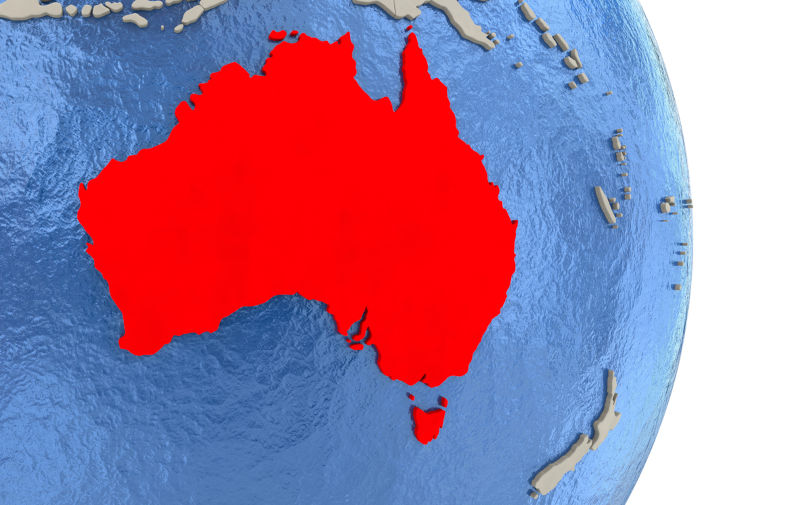Will Labor take Australia further from the global core?
July 24, 2025
As Anthony Albanese opens a new term and Treasurer Jim Chalmers signals a renewed focus on “abundance,” Australia stands at a pivotal juncture. Will Labor seize the opportunity to lead the nation into a high-value, sovereign economic future—or simply double down on the market-led path that has kept us stranded in the semiperiphery?
For now, the signs are troubling.
Despite the historic nature of the May 2025 election—delivering Labor’s first full progressive caucus majority since the Whitlam era—there is no clear indication that Albanese or Chalmers is prepared to break with the economic framework laid down by Hawke and Keating: a framework rooted in globalisation, deregulation, privatisation, and unwavering faith in market efficiency. In fact, there’s every indication that this framework is being repackaged, not rejected, under the language of “abundance” and “supply-side progressivism.”
Hawke and Keating redux?
To understand the present drift, we must recall the past orthodoxy. The Hawke–Keating project was built on the belief that opening Australia to international markets, reducing tariffs, floating the dollar, and unleashing private enterprise would lift productivity and investment. It reoriented Labor away from state-led development and toward neoliberal modernisation.
It was radical for its time. But it was also incomplete—and ultimately, insufficient. Fifty years later, Australia remains a low value-adding, resource-dependent economy. Productivity is falling, private investment is anaemic, manufacturing has been hollowed out, and business R&D is in long-term decline. We export raw materials, import complexity, and over-rely on population growth to sustain headline GDP. The core of the global economy—defined by innovation, sovereign capability, and complex production—remains out of reach.
Yet instead of confronting this failure, today’s Labor leadership seems poised to reaffirm it, wrapped in new language.
Abundance or entrenchment?
Treasurer Jim Chalmers has praised Abundance—the 2023 book by Ezra Klein and Derek Thompson—as “a ripper.” It is already being treated in some quarters as the intellectual north star for Labor’s new productivity push.
To be clear, Abundance is no right-wing tract. Its authors are progressive American thinkers attempting to reconcile pro-growth economic thinking with progressive goals. They argue that government must do more to unleash supply—especially in areas like housing, transport, and clean energy—by removing bottlenecks, streamlining regulation, and enabling faster delivery of public goods. In theory, it could be a left-liberal industrial strategy for the post-COVID age.
But in practice—especially in Australia—it risks becoming something very different: a justification for turbocharging market dependence, cutting planning protections, fast-tracking private development, and reducing democratic oversight in the name of “getting things built.” The danger is that Abundance becomes another Trojan horse for a deepening of neoliberalism—not its correction.
The shadow of Charlton
And if the future Labor leadership comes to be shaped not only by Chalmers but by Andrew Charlton—the Rudd adviser, and global consultancy veteran—then the gravitational pull toward market orthodoxy may grow stronger still.
Charlton is talented and technocratic, with sharp credentials and a strong media presence. But his economic worldview remains steeped in the legacy of Hawke and Keating: openness, global competitiveness, and deference to markets. His calls for industrial transformation are carefully hedged, and his alignment with venture capital and pro-market think tanks suggests a future in which Labor’s economic policy becomes even more anchored to private capital, deregulated investment zones, and public–private “partnerships” with limited public control.
Charlton and Chalmers may talk of productivity, transformation, and innovation. But without a fundamental shift in political economy, their policies will likely further entrench the current pattern: low-value exports, private monopolies, weak reinvestment, and continued semi-peripheral stagnation.
Neoliberalism with progressive branding?
The deeper concern is that Labor now risks cementing neoliberalism in progressive clothing. Abundance could become the new market gospel—framed in progressive tones but still wedded to the failed assumptions of the past, which include:
- That deregulation is always the answer.
- That private capital will eventually lead transformation.
- That public ambition must be channelled through private interest.
- That “efficiency” trumps democratic planning, deliberation, and equity.
Instead of breaking free from the failed paradigm of market-led nation-building, Labor may be dressing it up in more palatable language, while continuing to underinvest in sovereign capability, state-owned innovation, public R&D, and democratic industrial policy.
The alternative: strategic public leadership
It doesn’t have to be this way. The global moment is changing. Across the world, nations are rethinking market primacy. From the US CHIPS Act to European reindustrialisation and Asian state-capitalist successes, the lesson is clear: government must lead, not just enable.
Australia could follow suit by:
- Rebuilding a national development strategy tied to high-value industries and sovereign capabilities.
- Directing public investment into infrastructure, innovation, and complex production—green tech, AI, pharma, circular manufacturing.
- Reforming tax and capital markets to reward productive investment, not just property and dividends.
- Empowering public institutions to plan, coordinate, and shape markets—not just defer to them.
- And restoring the role of democratic accountability and social purpose in economic decision-making.
These are not nostalgic calls for protectionism or central planning. They are pragmatic responses to the failure of market liberalism to deliver national prosperity and resilience.
The test for Labor now is not whether it can govern competently—it already does. The test is whether it has the courage to challenge the economic story it still tells itself. If Albanese, Chalmers, and Charlton continue to walk the Hawke–Keating path—now paved in abundance-speak—Australia may drift even further from the global economic core.
The 2025 mandate is a chance to do more than manage the status quo. It is a chance to break it—to build a new political economy grounded in public purpose, national ambition, and a genuine commitment to economic transformation.
But that will only happen if Labor stops mistaking the market for a map—and starts building a future worthy of its history.
The views expressed in this article may or may not reflect those of Pearls and Irritations.

